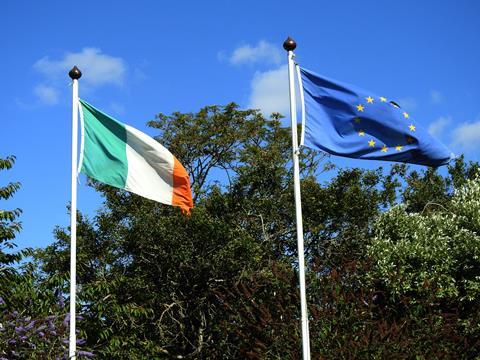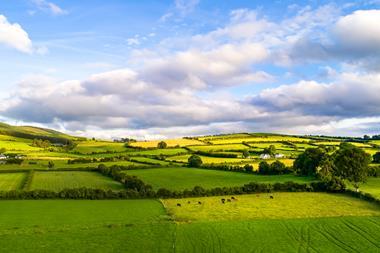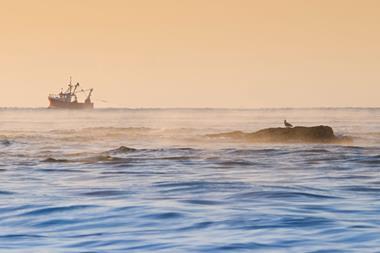
Ireland’s food, drink and horticulture exports to the UK saw a “slight decline” in value terms last year, according to Bord Bia, the Irish food board.
After a year marred by global supply chain difficulties, surges in fuel and transport costs, as well as soaring food commodity prices and related consumer inflation, the value of Ireland’s food, drink and horticulture exports to the UK were worth €4.4bn (£3.7bn), representing 33% of total exports value across the sectors.
This compared with €4.1bn in corresponding exports to Ireland’s nearest neighbour in 2016, the year of the Brexit referendum, when the UK’s export share was almost 40%.
However, Ireland’s agriculture minister Charlie McConalogue lauded the figures, which he said came in the face of “difficult external factors, such as the Covid-19 pandemic and our nearest trading partner the UK moving outside the EU Customs Union”.
According to Donal Denvir, Bord Bia’s representative in London, the sales showed Ireland remained a “key supplier” to the UK “not only due to our close geographical proximity but also because we are aligned in quality and sustainability assurance standards”.
But volume data obtained on Bord Bia’s website (which was omitted from the report) showed a 9% fall in Irish food, drink and horticulture exports to the UK, when January-October 2021, listed as the latest time period available, was compared with the same period in 2020.
Earlier last year the quantity of Irish goods sent to the UK fell, in part due to late 2020 stockpiling as concerns grew about a “no deal” Brexit. The UK and EU eventually signed their Trade and Cooperation Agreement, which saw the EU (and Ireland included), start running customs checks on British goods.
The island of Ireland was granted a temporary exemption ahead of the UK imposing reciprocal border controls on goods imported from the EU on 1 January.
As previously reported by The Grocer, Ireland’s beef exports to the UK fell at the start of the year, which Bord Bia on Wednesday said was “due to contingency planning in case of a no-deal Brexit and subsequent stockpiling in the last quarter of 2020”. Almost of half of Irish beef exports go to the UK.
According to the body, Irish exporters to the UK “traded through significant uncertainty, particularly in the first quarter of 2021 when there were high expectations of disruptions at UK ports”.
Ireland exports about 90% of the food and drink it produces. About one-third of that trade, which last year was worth around €15bn, was sent to the UK in 2021, with the remainder split almost evenly between the EU and the rest of the world.
Around 6.3% of Ireland’s total goods exports went to the UK in the first eight months of 2021, according to a report last month by the state-funded Economic and Social Research Institute in Dublin, a fall from almost 11% in 2015.
The ESRI said last month that Ireland’s food and drink exports had taken the biggest hit of all the sectors affected by falling trade with the UK.
The Food & Drink Federation, meanwhile, said food and drink imports from Ireland were down by a fifth in the January-September 2021 period, part of a wider 11% fall in imports from the EU compared to pre-pandemic times. The FDF data showed Ireland to be the UK’s third-biggest source of food and drink imports, after the Netherlands and France.


















